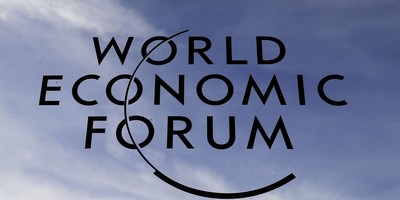In two months, voters will be faced with a choice between two fundamentally different approaches to America’s economic challenges: one that advocates for tremendous investments from the federal government to restart the economy and another that allows the regulatory and financial flexibility to let the market and small businesses drive economic growth.
The government approach has not worked. Supported by a Democratic House and Senate, President Obama signed $1 trillion worth of “investment” into law in the form of the so-called “Stimulus Package.” Today, the U.S. Department of Labor announced an unemployment rate of 8.1 percent with just 96,000 jobs added to the economy. While the administration promised to drive the unemployment rate below 8 percent with the stimulus package, it has hovered above that number for 44 consecutive months. What’s worse, 368,000 Americans were forced to stop looking for work – unable to find a job in the stagnant economy.
Last week, when asked to grade himself on the economy, President Obama gave himself and “incomplete.” For the 12.5 million unemployed Americans, an incomplete after a $1 trillion “investment” and three years of patience is simply unacceptable.
The stagnation and decline of our paychecks depict the stark reality of our economic standing – it’s not incomplete, the big-government attempts to mend the economy have run their course and they didn’t work. Mia Love, Mayor of Saratoga Springs and Utah congressional candidate, summed it up this way at last week’s Republican National Convention, “[Obama’s] policies have failed. We are not better off than we were four years ago, and no rhetoric, bumper sticker, or campaign ad can change that.”
Recommended
Rather than distorting markets and using taxpayer dollars to give life-support to programs the government deems worthy, the American workforce is much better served when the private sector is given the financial and regulatory flexibility to respond to the market. This begins with comprehensive corporate tax reform.
America’s tax code, which was originally designed in the 1980s, is not only the highest in the developed world, but the oldest and most complex as well.
Over the last 25 years, Members of Congress have offered narrow tax breaks to some in order to lower the effective tax rate for constituent businesses and cherry-picked industries. This approach to tax policy, however, has created tremendous uncertainty, undermining job creation efforts across the country and making it imperative that corporate tax reform is not limited to lowering the rate, but also eliminating the loopholes and putting all businesses on a level playing field.
A Heritage & Milken study found that by simplifying the tax code and lowering the tax rate, as many as 2.2 million jobs will be created. Moreover, it is the American workforce that stands to gain the most by a lower corporate tax rate, as workers bear up 75 percent of the corporate tax burden.
Our nation’s 35 percent corporate tax rate limits investment and development by making it extremely difficult for domestic businesses to compete in a global economy or further invest in job creation efforts here in America. With history as our reference, we must give American businesses the room and resources to grow so they can rebuild our economy.

























Join the conversation as a VIP Member